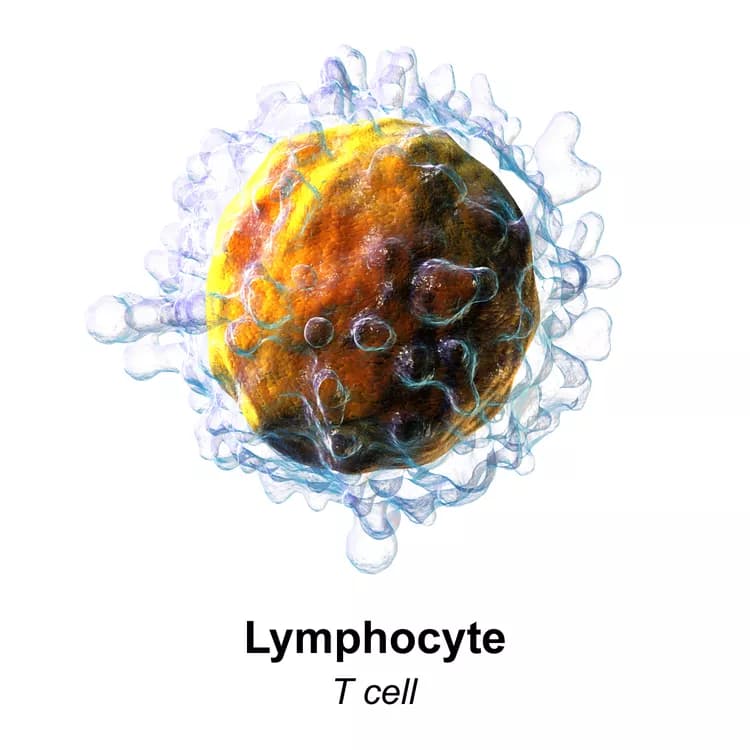
Improved Method Of Engineering T-cells To Attack Cancer
Researchers at Cardiff University have found a way to boost the cancer-destroying ability of the immune system's T-cells, offering new hope in the fight against a wide range of cancers.
Using CRISPR genome editing, the team took the genetic engineering of killer T-cells one step further by removing their non-cancer specific receptors and replacing them with ones that would recognise specific cancer cells and destroy them.
Dr Mateusz Legut from Cardiff University, who led the study while undertaking a Cancer Research UK funded PhD in the laboratory of Professor Andrew Sewell, said: "Up until now, T-cells engineered to fight cancer had two kinds of receptors -- the therapeutic one that was added in the lab, and their own naturally existing one. Since there is only limited 'space' on a cell for receptors, cancer-specific ones need to compete with the cell's own receptors to perform their function. More often than not, the cell's own receptors win that competition, and leave 'space' for only a very limited number of newly introduced, cancer-specific receptors, which means that T-cells engineered with the current technology never reach their full potential as cancer killers.
"The T-cells we made using genome editing do not have any of their own T-cell receptors left, and therefore the only receptor they can use is the one specific for cancer. As a result, these cells can be a thousand times better at seeing and killing cancer than the cells prepared using the current methodology."
T-cells are a part of the immune system that normally helps us fight off bacterial and viral infections, such as the flu virus. Some T-cells are also able to attack cancer cells. Augmenting and harnessing the anti-cancer activity of the body's own T-cells has led to the development of so-called immunotherapies which are now transforming the field of cancer treatment, even giving hope to patients with final stage disease.
The team believe that in time new improvements in gene editing technology are set to revolutionise cancer immunotherapy, making the treatments, which are unprecedented in their effectiveness, applicable to wider cohorts of patients suffering from different types of the disease.
Professor Andrew Sewell, from Cardiff University's School of Medicine, said: "The improvement in the sensitivity of cancer recognition that can be achieved by editing out the existing natural receptor and then replacing it with one that sees cancer cells is remarkable. Future clinical applications are likely to now make use of this advancement."
Professor Oliver Ottmann, Head of Haematology at Cardiff University and co-lead of the Cardiff Experimental Cancer Medicine Centre (ECMC), who is also co-author of the study, added: "Immunotherapy -- harnessing the body´s own immune cells -- has become the most potent and promising new treatment for a range of cancers and represents one of the biggest breakthroughs in cancer treatment in memory.
"I believe that our improved method of making cancer-specific T-cells will guide a new generation of clinical trials and be used by researchers in the laboratory to discover new cancer-specific T-cell receptors and new targets for cancer therapy."
Materials provided by Cardiff University. Note: Content may be edited for style and length.
Disclaimer: DoveMed is not responsible for the accuracy of the adapted version of news releases posted to DoveMed by contributing universities and institutions.
References:
Mateusz Legut, Garry Dolton, Afsar Ali Mian, Oliver Ottmann, Andrew Sewell. (2017). CRISPR-mediated TCR replacement generates superior anticancer transgenic T-cells. Blood. DOI: 10.1182/blood-2017-05-787598
Related Articles
Test Your Knowledge
Asked by users
Related Centers
Related Specialties
Related Physicians
Related Procedures
Related Resources
Join DoveHubs
and connect with fellow professionals

0 Comments
Please log in to post a comment.